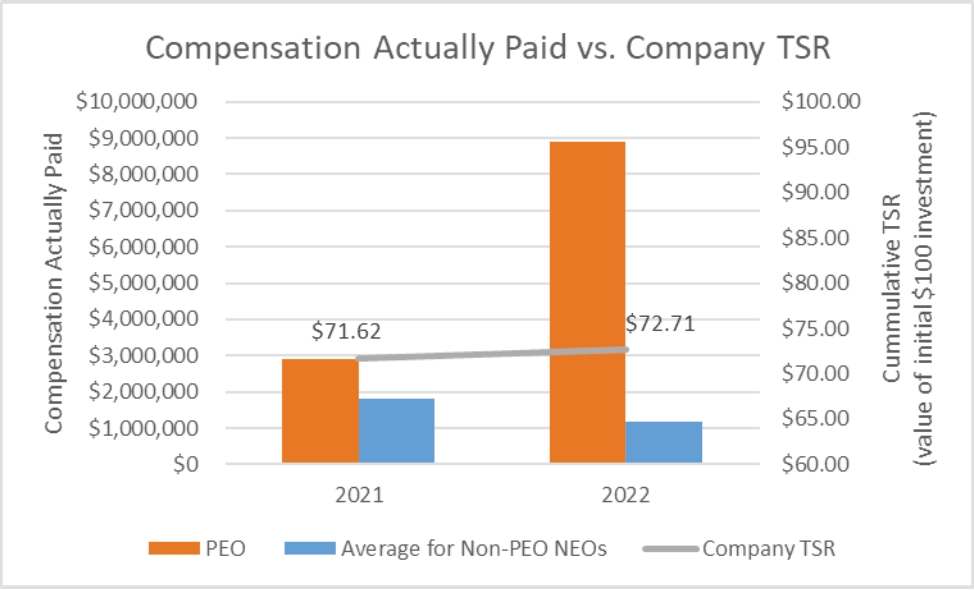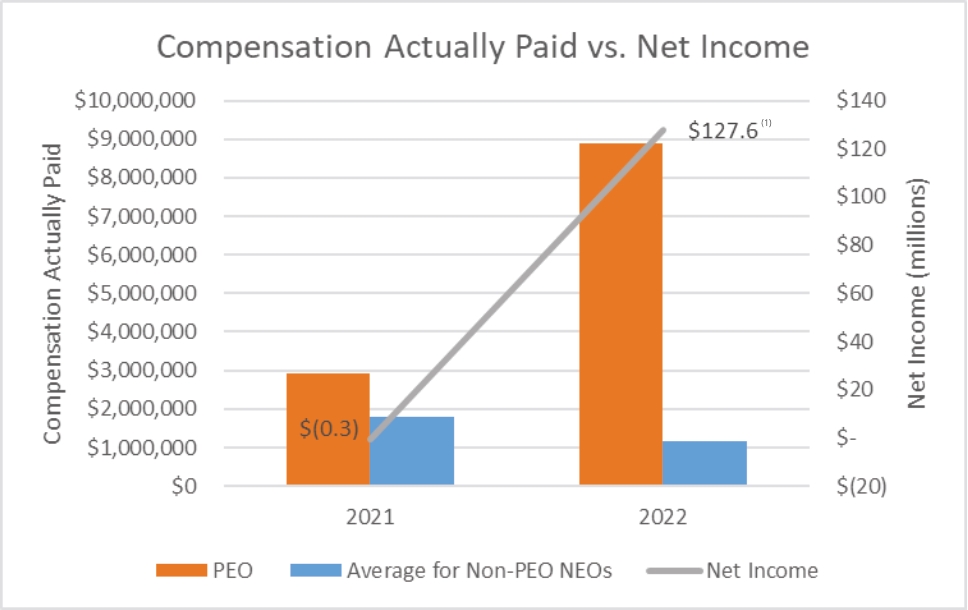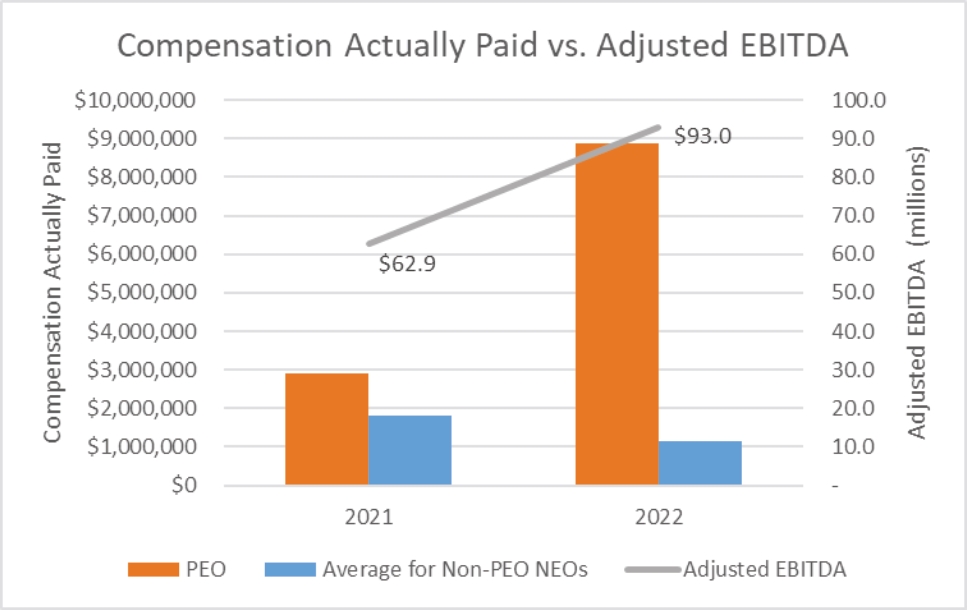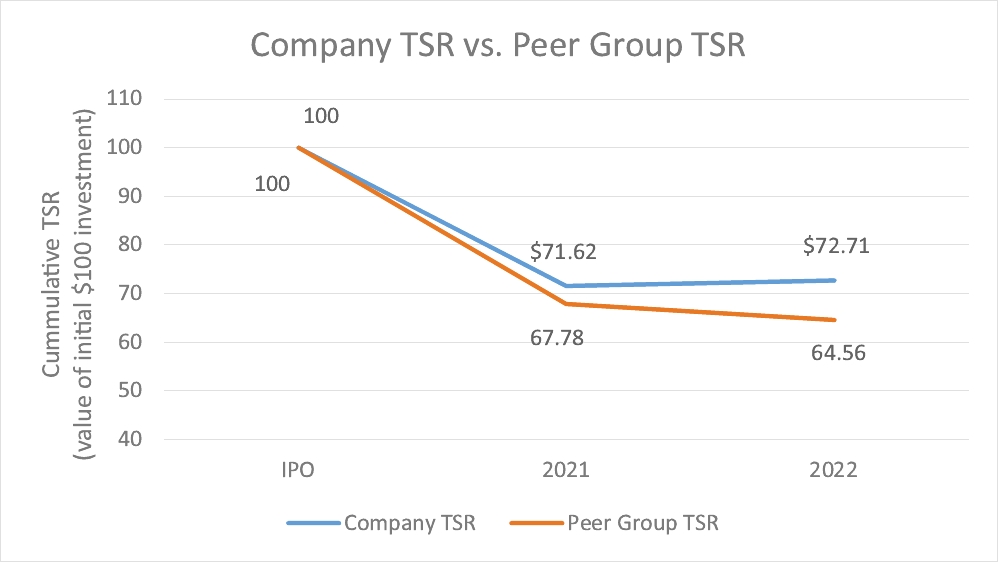We maintain a directors’ and officers’ insurance policy. The
policy insures directors and officers against unindemnified losses arising from certain wrongful acts in their capacities as directors and officers and reimburses us for those losses for which we have lawfully indemnified the directors and
officers. The policy contains various exclusions that are normal and customary for policies of this type.
The Board believes that the limitation of liability and
indemnification provisions in our Charter, Bylaws and insurance policies are necessary to attract and retain qualified directors and officers. However, these provisions may discourage derivative litigation against directors, even though an
action, if successful, might benefit us and other shareholders. Furthermore, a shareholder’s investment may be adversely affected to the extent we pay the costs of settlement and damage awards against directors and officers as required or
allowed by these limitation of liability and indemnification provisions.
We are party to customary indemnification agreements with each of our
executive officers and directors that provide them, in general, with customary indemnification in connection with their service to us or on our behalf.
2022 Common Stock Offering
On December 6, 2022, we completed a public offering of 2,000,000
shares of Class A common stock by us and 24,000,000 shares of Class A common stock by the Founder and certain of his affiliates (the “Selling Stockholders”). The underwriters were granted an overallotment option to purchase up to an additional
3,900,000 shares of Class A common stock, which was exercised in full. The offering was made pursuant to the Company’s automatic shelf registration statement on Form S-3 (File No. 333-268610) that became effective under the Securities Act when
filed with the SEC on November 30, 2022, and a related prospectus supplement dated December 1, 2022. The Company used the proceeds of the sale of Class A common stock together with cash on hand, to make a payment of $58.0 million to terminate
the TRA. The Company did not receive any of the proceeds from the sale of Class A common stock by the Selling Stockholders.
2023 Common Stock Offering
On March 10, 2023, The Selling Stockholders completed a public
offering of 24,501,650 shares of Class A common stock by the Selling Stockholders. The underwriters were granted a 30-day option to purchase up to an additional 3,675,247 shares of Class A common stock. As of March 16, 2023, the underwriters
had not exercised this option to purchase additional shares. The offering was made pursuant to the Company’s automatic shelf registration statement on Form S-3 (File No. 333-268610) that became effective under the Securities Act when filed with
the SEC on November 30, 2022, and a related prospectus supplement dated March 7, 2023. The Company did not receive any of the proceeds from the sale of Class A common stock by the Selling Stockholders.
Other Related Party Transactions
Dean Solon, the Founder, was employed by us and served as a director
for a portion of 2022. For a detailed description of Dean Solon’s total 2022 compensation, see “Director Compensation.”
The Founder is an owner and affiliate with companies engaged in solar
power deployment, including EnPower Solutions, which has requested quotes from the Company for various projects. During 2023, we entered into purchase orders with EnPower Solutions, pursuant to which we agreed to sell Big Lead Assembly
solutions. The approximate dollar value of the transaction is $212,000. The Company will sell to such entity in the normal course of business at prevailing gross margin rates.
George Solon and Valerie Solon, brother and sister of the Founder,
respectively, were each employed by our subsidiaries, Shoals Technologies Group, LLC and Shoals Technologies, LLC in 2022. George Solon served as the facilities manager and for 2022 received total compensation of: $8,333 in salary. Valerie
Solon serves in Corporate Marketing and for 2022 received total compensation of: $105,000 in base salary; $131,280 in bonus; and $38,216 in RSUs.







